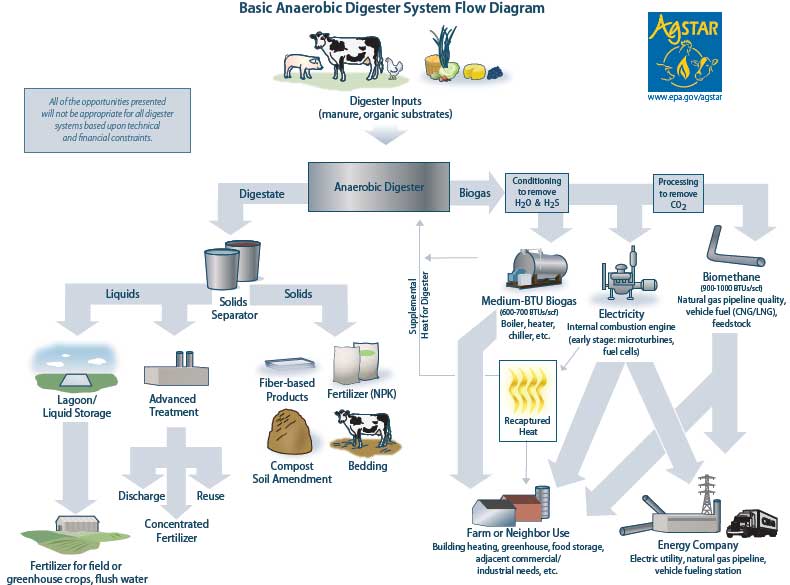Anaerobic digestion
Anaerobic literally means "living without air." In the environmental field anaerobic means an environment where oxygen is absent. Anaerobic digestion (AD) is a combination of processes, mediated by microorganisms, during which organic matter is converted into methane in the absence of oxygen. AD occurs naturally in several anaerobic environments such as bottom sediments of water bodies, wetlands, soils, and the stomachs of domestic livestock (cattle, sheep, goats, etc). Engineered AD systems can convert organic waste into methane providing multiple benefits. The digested organic matter resulting from the process is called digestate.
Why anaerobic digestion?
- Waste quantities are significantly reduced
- Reduced waste disposal needs increase the life of area landfills
- Energy is generated from waste, a non-fossil-fuel feedstock, hence part of the natural carbon cycle
- Nutrient-rich supernatant is generated, which can be used as a fertilizer or soil conditioner
- AD contributes to the goal of increasing the proportion of energy derived from renewable sources
- Several useful and commercially valuable byproducts can be obtained through downstream processing
 Photo courtesy of epa.gov
Photo courtesy of epa.gov







